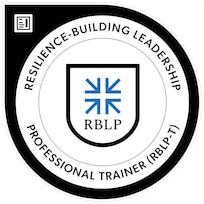Personal growth is the ongoing process of understanding and developing oneself to achieve personal potential. It includes various aspects such as emotional, intellectual, and social well-being.
Significance of Taking Baby Steps in Self-Improvement:
- Incremental Progress: Small steps allow you to make gradual changes without overwhelming yourself.
- Building Confidence: Each completed step boosts your confidence, encouraging further action.
- Creating Momentum: Tiny actions create a ripple effect that can ultimately lead to substantial achievements.
Overview of How Small Actions Lead to Significant Life Changes:
Engaging in simple, daily tasks can be transformative. For instance:
- Daily Habits: A commitment to reading just one page a day fosters a habit that leads to completing multiple books over time.
- Fitness Goals: Walking for just ten minutes each day can evolve into more extensive workout routines, enhancing physical health.
Baby steps serve as the foundation for larger aspirations. They remind you that every significant accomplishment begins with the decision to take that first small step forward.

Understanding and Combating Procrastination for Personal Growth
Procrastination is the act of delaying important tasks despite being aware of negative consequences. This behavior can significantly hinder personal growth. It often leads to feelings of guilt, anxiety, and a sense of inadequacy, creating a cycle that can be difficult to break.
Psychological Reasons Behind Procrastination
Understanding procrastination involves exploring its psychological roots. Fear-based thinking plays a crucial role in delaying actions. Common fears include:
- Fear of Failure: Worrying about not meeting expectations can prevent you from starting.
- Fear of Success: Achieving your goals may bring new challenges, leading to avoidance.
- Fear of Judgment: Concerns about how others perceive your work can cause hesitation.
These fears manifest as self-doubt, which contributes to inaction and maintains a status quo that feels comfortable, but unfulfilling.
Effective Strategies to Combat Procrastination
To break free from procrastination, consider these practical techniques:
- Mel Robbins’ Five-Second Rule: This method encourages you to count down from five and take action immediately. The countdown distracts you from overthinking and prompts quick decisions.
- Slow-but-Don’t-Stop Technique: Focus on gradual progress rather than overwhelming yourself with perfection. Start with just ten minutes on a task; this small commitment can reduce feelings of overwhelm.
- Create a Non-Distracting Environment: Minimize distractions in your workspace by removing items like video game consoles or phones that divert attention.
- Practice Self-Kindness: Avoid harsh self-criticism when you struggle with tasks. Instead, acknowledge your feelings without judgment to cultivate a more supportive mindset.
- Movement to Decrease Anxiety: Engaging in physical activity before tackling tasks can help alleviate fear and anxiety, making it easier to start.

Implementing these strategies fosters an environment conducive to personal growth by helping you manage procrastination effectively. Embracing small actions will lead you closer to achieving your goals and overcoming the hurdles that hold you back.
Developing Effective Habits and Mindset for Personal Growth
Creating effective habits is essential for achieving personal growth. Habits serve as the building blocks that signal engagement in specific behaviors aligned with your goals. When you develop consistent routines, you set a foundation for progress. Here’s how to get started:
Identify Key Habits
Focus on small, manageable actions that lead toward your larger objectives. Write down daily habits that resonate with your aspirations. This clarity enhances motivation.
Establish Daily Rituals
Rituals can boost self-awareness and improve task management. For instance, starting each day with a morning routine—like journaling or meditation—helps center your thoughts and prepares you for the day ahead.
Incorporate Mindfulness Practices
Mindfulness techniques are powerful tools in enhancing focus and reducing distractions. Simple practices like deep breathing or short meditations can redirect your attention to the present moment.This not only mitigates anxiety, but also fosters a positive mindset.
Emotional Regulation in Habit Formation
Emotional regulation plays a critical role in sustaining habits. Recognizing and managing emotions helps prevent setbacks caused by stress or anxiety.
Techniques such as:
- Self-reflection: Take time to understand what triggers negative feelings related to your tasks.
- Positive affirmations: Reaffirming your capabilities can reinforce confidence, making it easier to stick to habits.

The Impact of Consistency
Consistency is key in habit formation. By committing to your daily rituals, you create a rhythm that makes engagement easier over time. This rhythm not only promotes emotional well-being, but also enhances productivity.
When you focus on these elements—habits, rituals, mindfulness—you cultivate an environment conducive to personal growth. Each small step taken toward developing these effective practices brings you closer to realizing your goals and becoming the person you aspire to be.
Setting Achievable Goals with the Law of Attraction for Personal Growth
Setting achievable goals is a crucial part of personal growth. Specific goals can be broken down into smaller, manageable tasks to increase your chances of success. This method reduces overwhelm and allows you to focus on making progress one step at a time.
Here’s how you can break down your goals:
- Identify your primary goal: Define what you truly want to achieve.
- Segment it into smaller tasks: For example, if your goal is to run a marathon, break it down into weekly training schedules.
- Set deadlines for each task: Assign timeframes to keep yourself accountable.
Act on small steps first, this will help you create a clear pathway toward larger achievements. Each completed task serves as a motivator, reinforcing your commitment to the overall objective.
The Law of Attraction in Goal Setting
The law of attraction complements effective goal-setting strategies by helping you manifest desired outcomes. This principle suggests that positive thoughts and intentions can attract favorable circumstances into your life.
To harness the law of attraction effectively:
- Visualize your goals: Spend time imagining the successful completion of each task.
- Focus on positive energy: Concentrate on what you want rather than what you fear or lack.
- Use affirmations: Repeat positive statements about your capabilities and future successes.

Incorporating these techniques enhances your mindset and aligns it with your goals. By channeling positive energy toward your objectives, you create an environment where opportunities can flourish.
Connecting small steps with the law of attraction can empower your personal growth journey. You not only build momentum through achievable tasks, but also cultivate a mindset poised for success. This combined approach bridges daily efforts with long-term aspirations, paving the way for transformative change in your life.
Inspiration from Female Entrepreneurs: Overcoming Fear and Embracing Small Steps in Business Development
Insights from our work with female entrepreneurs reveal the common fears that often hinder progress. Many women face:
- Fear of Failure: The anxiety surrounding potential setbacks can be paralyzing.
- Imposter Syndrome: Doubting one’s abilities creates a significant barrier to action.
- Comparison to Peers: Measuring success against others can lead to stagnation.
To combat these fears, here are several practical tips:
- Acknowledge Emotions: Recognize feelings of fear and uncertainty as normal parts of the entrepreneurial journey.
- Break Tasks into Smaller Steps: Incremental actions reduce overwhelm and foster a sense of accomplishment.
- Celebrate Small Wins: Each step forward, no matter how minor, builds confidence and momentum.
The value of taking incremental actions extends beyond business growth. In personal development, small steps lay the foundation for larger achievements.
Engaging in consistent, manageable tasks fosters resilience. This approach empowers female entrepreneurs to navigate challenges with grace, transforming fear into fuel for progress. By embracing small steps, you create pathways leading to significant outcomes in both personal and professional realms.

Conclusion: Embracing the Power of Baby Steps for Lasting Change
Embracing small changes opens up opportunities for greater achievements in your personal growth journey. Consider the following benefits:
Happiness: Small victories create a sense of accomplishment.
- Emotional Regulation: Gradual progress helps manage feelings of anxiety and overwhelm.
- Personal Growth: Small actions build momentum toward significant life changes.
Taking baby steps builds resilience, allowing you to face challenges with confidence. Understanding that every small effort contributes to your overall journey creates a powerful foundation for lasting transformation. Start today, and let each step lead you toward the life you want.































